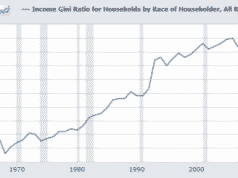You know it is time to take a closer look at a deal when the smarmy pitchman warns you to act now before it is too late. Unless a safe is falling on your head, it is usually a good idea to step back, take a deep breath or two, and review what is on the table.
We frequently use fear as a motivator, sometimes with good intentions. The fear of blindness temporarily stayed many a boy from personal exploration. On the other hand, some people play into deep-seated fears of social exclusion, racism, or terrorism to gain some level of control over individuals, whole classes of people, or nations.
One can make an argument that the United States government overreacted in some of its anti-terrorism laws and measures following the Sept. 11 attacks. We and our leaders responded in good faith to the fear that additional terrorists were poised to kill more Americans using airplanes and other weapons. The seduction of fear led to National Guardsmen patrolling airport terminals, armed with weapons that had no bullets. We continue debating the necessity of the past administration’s efforts to protect our nation, which included water boarding, wire tapping, and the Department of Homeland Security.
Homeland Security Secretary Janet Napolitano this week said she disagrees with Bush Administration measures that fed into fears and did not include the participation of the American people in improving the country’s resilience against attacks. “The consequences of living in a state of fear, rather than a state of preparedness, are enormous,” she said.
Frank Furedi, a professor of sociology at the University of Kent, contends the seduction of fear feeds into the Precautionary Principle, which is designed to eliminate the risk of harm. Furedi says people no longer believe in acts of God or naturally occurring events. For example, accidents are preventable injuries, and we need to fix the causes. If a teenager dies in a car wreck, the family blames missing guardrails or poor road maintenance, and demands laws that keep teenagers from driving at night.
He also believes society no longer expects individuals to rise above adversity. Society, instead, treats people as victims scarred for life. Enter the poverty pimps and community organizers who convince people that racists, bigots, and the wealthy will never let them succeed because of their race, their gender, or their economic status. Only they, the poverty pimps and community organizers, can affect justice for the oppressed.
Individual responsibility does not exist in a precautionary culture, according to Furedi. Thoughtless people, greedy corporations, and incompetent government watchdogs cause a plethora of societal woes. So, we divide the citizenry into vulnerable or at-risk groups that need government protection from a government we do not trust, and we roll over to the seduction of fear by allowing that government to throw money and regulations at circumstances within our control.
If we believe the national news media and Washington fear mongers, each one of us is in danger of losing our home to foreclosure or seeing our home’s value plummet unless Uncle Sam steps in with mountains of cash. People across the country bought into that fear, causing the value of homes in unaffected areas to fall. The government, meantime, pumped billions of dollars into the system to save troubled mortgages given to individuals who could not and cannot afford them.
Buried in a wire-service story this week was a statement from the chief economist of the Federal Deposit Insurance Corporation who estimates the number of home foreclosures could reach 5 million by 2011. That’s a big number, especially if you are one of the 5 million, but it represents just over 6 percent of all homes in the country. In other words, 94 percent of home mortgages are safe and have been.
Another example is the current healthcare debate. Eighty-nine percent of respondents to the latest Time magazine poll said they have some form of healthcare coverage, and 86 percent of that group said they are very satisfied or somewhat satisfied with their plans. A Gallup poll last November found that 83 percent of Americans said the quality of their health care is excellent or good.
Proponents of sweeping changes in healthcare coverage and healthcare delivery use the seduction of fear to make their case rather than rely on reasonable examinations of the underlying causes and effective cures.
The seduction of fear only leads to the reduction of reason, which comes with a price tag no one can afford.
Mundus vult decipi
John David Powell is an award-winning Internet columnist and writer.





